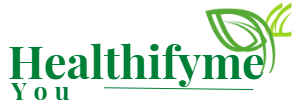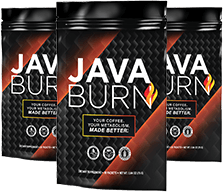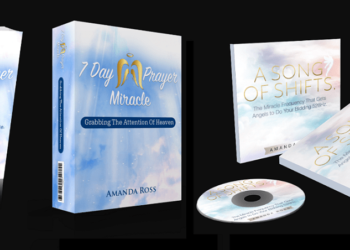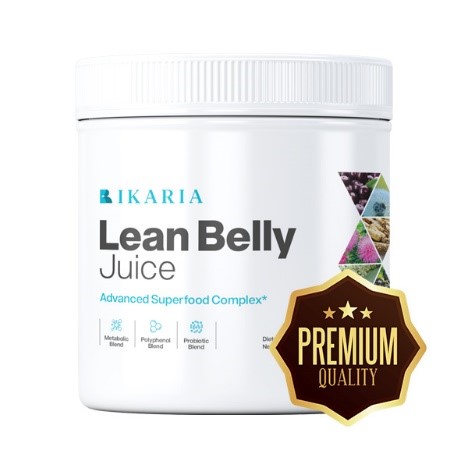You’re fairly blissful about your baby bump. But it’s laborious to have the identical degree of pleasure for the bumpy blue veins which have started showing in your legs and different elements of your body. However, varicose veins during pregnancy are quite common.
Varicose veins may be uncomfortable, however they’re often nothing to fret about. And even higher, varicose veins often go away or get higher after your baby is born.
But why are varicose veins so widespread during pregnancy? Where can they seem? And is there any approach to stop or get rid of varicose veins? Below, we’ll reply these questions and extra.
What causes varicose veins during pregnancy?
Your veins are a part of the circulatory system and transfer blood by way of your body. If blood isn’t flowing correctly, it may again up and pool inside your veins. The additional blood in your veins may cause them to bulge by way of the pores and skin and turn into enlarged, swollen varicosed veins. Varicose veins are often darkish purple or blue however may also be crimson.
While you could consider varicose veins as one thing that occurs when you get older, they’re additionally quite common during pregnancy due to adjustments in blood movement. About 80% of individuals have blood movement issues (additionally known as persistent venous insufficiency) during pregnancy – and of these, about 40% develop varicose veins. Here are some causes why being pregnant impacts blood movement in your body:
- Hormones – You have extra progesterone, a hormone that relaxes blood vessel partitions and adjustments how your vein valves work.
- Increased blood quantity – When you’re pregnant, the quantity of blood in your body will increase by about 30-50%. This additional blood is required to supply essential vitamins on your rising baby.
- Pressure – Your baby is pushing in opposition to the big vein (the inferior vena cava) that carries blood again to the guts out of your ft and legs. This can change blood movement in your legs and pelvic area.
- Genetics – Varicose veins during pregnancy tends to run within the household. If your mother or grandmother had them once they have been pregnant, there’s a higher likelihood that you will too.
- Constipation – During pregnancy, constipation is widespread. Constipation is a explanation for varicose veins in your rectum or across the anus (the place poop comes out).
- Diet – Too a lot sodium or not sufficient fiber could make you retain water and enhance your threat of varicose veins.
- Weight – Varicose veins are extra widespread when you’re carrying additional weight.
When do varicose veins start in pregnancy?
You can develop varicose veins anytime during pregnancy, however they have a tendency to start in your second trimester – within the third or fourth month of pregnancy.
What varicose veins look and really feel like during pregnancy
The most typical areas for varicose veins during pregnancy embody your legs, ankles, exterior genitals, rectum and anus.
For some folks, varicose veins don’t trigger any signs, however for others, varicose veins may cause ache that’s delicate or extreme. The quantity and seriousness of varicose vein signs typically is determined by the place they’re positioned in your body – those in your exterior genitals or close to your anus are usually extra bothersome than these in your legs or ankles.
Swollen veins in your legs and ankles
Legs and ankles are the most typical areas for varicose veins. There’s an extended distance between your ft and your coronary heart, and the blood must movement in opposition to gravity. Plus, strolling and standing enhance the pressure on the veins in your legs.
Often, you received’t really feel varicose veins in your legs. But they will make your legs really feel heavy or trigger signs reminiscent of discomfort, ache, itchiness, cramping or swelling. If you’re bothered by varicose vein signs, speak to your OB-GYN, midwife or different women’s health specialist about them. They’ll have suggestions about what you can do.
Varicose veins on the vulva, together with labia (vulvar varicosities)
During pregnancy there’s a higher likelihood of getting varicose veins on the exterior genital space, but it surely nonetheless solely occurs in about 8% of pregnancies. When you’re pregnant, extra blood is flowing to the pelvic area, but when the blood movement out of your decrease body to the guts is slower, blood can pool within the vulva.
Varicose veins on the labia or different elements of the vulva may cause ache or discomfort within the genital space, higher thighs and decrease again. It can even trigger a sense of fullness within the vulva or itchiness within the surrounding space. Symptoms of vulvar varicosities often get worse after standing for a very long time or during intercourse. Applying a chilly compress to the vulva could assist relieve discomfort. It’s additionally a good suggestion to ask your women’s health specialist for different suggestions.
Enlarged veins in your backside (hemorrhoids)
Varicose veins in your backside are often known as hemorrhoids. They are extra widespread during pregnancy due to hormonal adjustments and as a result of your rising baby is placing pressure in your anus and rectum.
Hemorrhoids may cause ache or itching across the anal space. Often, hemorrhoids may be handled at dwelling with topical ache relievers. Sitting in a heat bathtub helps too.
Hemorrhoids may cause rectal bleeding, and you could discover shiny crimson blood on the bathroom paper. This often isn’t one thing to fret about, but it surely’s a good suggestion to inform your physician. If there’s lots of blood, head to pressing care.
Spider veins during pregnancy are additionally widespread
If you see skinny, threadlike veins by way of your pores and skin, that don’t bulge, these aren’t varicose veins – they’re most likely spider veins. Spider veins are teams of small veins and can seem like spider webs or branches beneath your pores and skin. They may be crimson, blue, purple or inexperienced.
Spider veins can present up in your face, neck, arms, stomach or legs during pregnancy. They have the identical causes as varicose veins, however they’re milder and often innocent and painless.
What you can do about varicose veins (and presumably stop new ones)
It’s not all the time attainable to forestall varicose veins during pregnancy, however there are issues you can do to make them much less seemingly or to maintain them from getting worse. Your women’s health specialist will be capable of present options customized to you, however widespread suggestions embody:
- Moving extra – Try to not sit or stand in a single place for too lengthy.
- Changing how you sit – Don’t cross your legs when sitting. If attainable, elevate your ft.
- Increasing fiber and limiting sodium – Eating extra fiber is likely one of the greatest methods to alleviate constipation. And chopping again on sodium will help cut back swelling, making it simpler for blood to maneuver by way of your body.
- Wearing compression clothes – Maternity help pantyhose and compression socks apply delicate pressure in your legs and blood vessels, making it simpler on your body to push blood out of your decrease limbs again to your coronary heart.
- Sleeping in your aspect – This sleeping place takes pressure off the inferior vena cava, which is the foremost vein that returns blood from the decrease body to the guts. If you discover it uncomfortable to sleep in your aspect, attempt putting a pillow between your knees and one other one beneath your stomach.
- Exercising every day – Working out whereas pregnant will increase blood movement and will help with varicose veins. Thirty minutes of low-impact exercise, like a stroll, is often an excellent goal. But it’s necessary to be secure, so speak to your physician about what is smart for you.
Varicose veins during pregnancy are often nothing to fret about
Varicose veins during pregnancy are often innocent, and medical doctors usually don’t deal with them since they have a tendency to enhance after you have your baby. Rarely, varicose veins can get contaminated. If your varicose veins really feel laborious, heat or particularly painful, or the encompassing pores and skin appears to be like crimson, name your physician or head to pressing care.
Varicose veins typically go away after pregnancy
The varicose veins and spider veins you get during pregnancy typically go away after childbirth. This is particularly true in the event that they’re attributable to adjustments to your body – reminiscent of elevated weight and blood quantity – that naturally go away after delivery and during the postpartum restoration course of.
It can take as much as 12 weeks for these veins to fade or disappear since your body wants time to get better. Some adjustments occur immediately – after supply, your uterus will not press down on the inferior vena cava. But it may take somewhat longer for different adjustments, like on your hormones and blood pressure to degree out.
When to speak to a physician about varicose veins
Most of the time, varicose veins aren’t something to fret about. If they’re not painful, you can wait to deliver it up at your subsequent go to in your prenatal appointment schedule. Or you can actually make an appointment to see your physician sooner. However, if you assume a varicose vein is contaminated, head to pressing care.
After your baby is born, proceed to regulate your veins. While the enlarged veins you get during pregnancy often go away on their very own, typically they don’t. If your varicose veins stick round for quite a lot of months, or get worse, speak to a women’s health specialist or major care physician. They’ll be capable of present tips for varicose vein self-care. If acceptable, they will additionally refer you to a vein specialist to study extra about varicose vein therapies.



















Discussion about this post